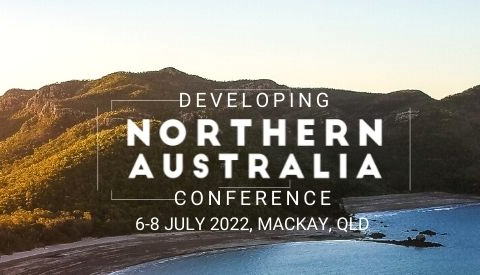From reimagining Northern Australian healthcare and integrated cotton, grain and cattle farms to building a commercially successful Northern Australian spice industry and ramping up the agricultural potential of Queensland’s coastal strip, the Cooperative Research Centre for Developing Northern Australia (CRCNA) will showcase the difference collaborative research is making to Northern Australia at this year’s Developing Northern Australia (DNA) Conference which takes place in Mackay from 6-8 July.
CRCNA CEO Anne Stunzner, a participants in the Northern Australia: Current Directions and Collaboration Across Key Institutions panel discussion alongside the Office of Northern Australia’s Linda Lee and the Northern Australian Infrastructure Fund’s Craig Doyle, said the CRCNA plays an important role in the sustainable development of Northern Australia through funding collaborative research, focused support for collaborative research projects which have achieved commercial success, and leading the Northern Australian research agenda.
‘We are very proud of the research we commission and excited to showcase some of our diverse research projects at this year’s DNA Conference. The CRCNA works across the key areas of agriculture, health and the Indigenous Estate and we will be demonstrating the success we have achieved for the region across these themes.
‘Our key presentations focus on work we are doing in the health space across funding, workforce development and service delivery; our record investment into developing an evidence base for best practice integrated, cotton, grain and cattle farms, Queensland’s emerging and highly successful spice industry and sustainable coastal agricultural development.
‘We will also focus on what it means to lead the Northern Australia research agenda. This means that CRCNA is leading the way in working with a diverse range of stakeholders including universities, industry and elected decision – makers to refine and define the research priorities which will underpin a more prosperous and sustainable Northern Australia.
‘This responsibility speaks to our core values of following the science, collaborative and industry driven priorities and a multi – domain a social, cultural, economic and environmental approach to development.
Ms Stunzner said she was looking forward to meeting the newly elected Minister for Resources and Minister for Northern Australia Madeleine King at the DNA Conference.
‘I congratulate the Minister on her recent election and am excited she has chosen to attend this event. This Conference brings together a diverse range of Northern Australian stakeholders and is a great way to understand the variety of challenges, opportunities and knowledge gaps in the greater Northern Australian project.’


